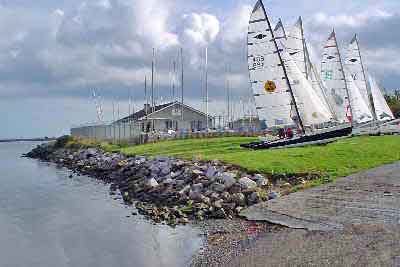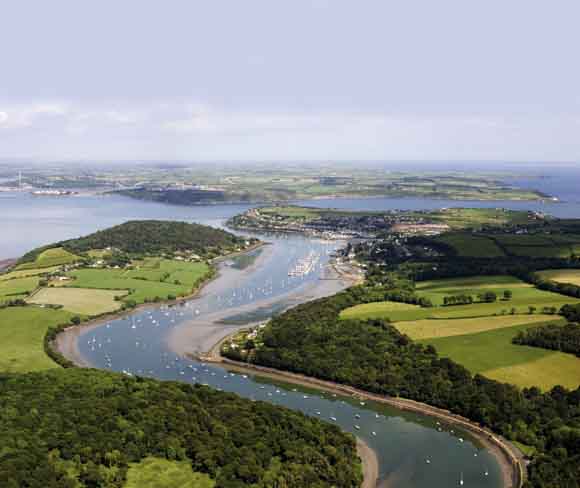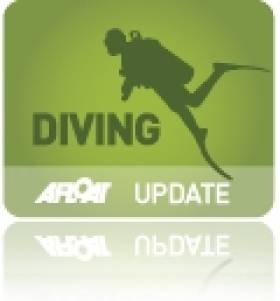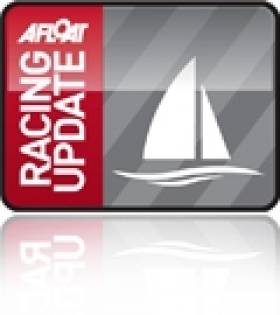Displaying items by tag:
Ireland's Top Wreck Diving Sites
With the Lusitania expedition in the news, Saturday's Irish Times presents a guide to some of Ireland's most interesting diving sites for all levels of experience.
Though Ireland can boast an abundance of shipwreck sites, a number of them are off-limits to anyone but the hardiest expert explorers, while others require a licence from the Department of Hertiage.
But open dives are still plenty, such as the wreck of UC-42 off Roches Point in Cork, which happens to lie in a popular diving range, and the Empire Hertiage, which lies 30km off the coast of Malin Head and is regarded as one of Ireland's best wreck dives.
Among the licenced dives, the HMS Vanguard - which was tragically sunk 19km east of Bray by its sister ship Iron Duke in 1875 - is a top contender, with the summer months providing astounding visibility of the ship's 9in guns.
The Irish Times has more on the story HERE.
Lecture: "Pilots in the Bristol Channel"
in the Poolbeg Yacht Boat Club & Marina (PYBC). The next lecture is "Pilots in the Bristol Channel" by
Tom Cunliffe which is to held on Tuesday 23 November (1930 for 2000 hrs start).
the Sean Moore Road that connects the Merrion Strand Road (southbound) and the East-Link Toll Bridge
(northbound).
For further information on the DBOG lectures contact Tim Magennis on 087 2593113.
and on the PYBC Tel: (01) 668 9983 or logon to www.poolbegmarina.ie/
Three Irish in Dragon Top Five
Three Irish Dragons made the top five at the Northern Area Championships last weekend, just across the water in Abersoch. South Caernarvonshire Yacht Club hosted a small fleet, sailing in gusty conditiond of up to 25 knots. Royal St George YC vice-commodore Martin Byrne topped the Irish entries with five seconds in seven races, but couldn't edge out ahead of Tim Tavinor and his crew who pocketed a brace of bullets to walk away deserved leaders.
Just thirteen boats lined out for the event, with Kin (Simon Brien) and Phantom (David Williams) the other two Irish boats alongside Jaguar.
Results HERE
Swords Sailing and Boating Club
Swords Sailing & Boating Club
 Located Halfway between Malahide and Swords, near the main Belfast road. Season runs from March to December. Very active dinghy programme – and a very active club for both the young and the young at heart!
Located Halfway between Malahide and Swords, near the main Belfast road. Season runs from March to December. Very active dinghy programme – and a very active club for both the young and the young at heart!
We have grown from humble beginnings, operating from a cargo container, to become a well established club boasting four national champions in different fleets in the one year!!
Racing every Sunday at 2pm and Wednesdays at 7.30. Friendly family Orientated club. New members always welcome.
Swords Sailing & Boating Club, c/o Donal Brennan, Broadmeadow Estuary, Swords, Co Dublin. Tel: 01 8454 686, email: [email protected]
Have we got your club details? Click here to get involved
Port of Ballina
Port of Ballina
Coordinates: 54°07′00″N 9°10′00″W / 54.1167°N 9.1667°W / 54.1167; -9.1667
Ballina (Irish: Béal an Átha or Béal Átha an Fheadha, lit. mouth of the ford) is a large town in north Co Mayo in Ireland. It lies at the mouth of the River Moy near Killala Bay, in the Moy valley and Parish of Kilmoremoy, with the Ox Mountain range to the east and the Nephin Beg mountains to the west. The town occupies two Baronies; Tirawley on the west bank of the Moy River, and Tireragh on the east bank.
The recorded population of Ballina's urban area is 10,409. Census 2006 figures released by the Central Statistics Office in September 2007 showed that Ballina had the highest rate of unemployment amongst large towns in the Republic of Ireland. Some 15.8% of Ballina's population was out of work when the 2006 census was taken. Unlike neighbouring towns such as Castlebar and Sligo, it is claimed that Ballina suffered from a lack of government investment for many years because it was not effectively represented in Dail Eireann.
According to Encyclopaedia Britannica the first signs of settlement on the site of the town dates from around 1375 when an Augustinian friary was founded. Belleek, now part of the town, pre-dates the town’s formation, and can be dated back to the late 15th century, or early 16th century. However, what is now known as Belleek Castle was built in 1831. Ballina was officially established as a town in 1723 by O'Hara, Lord Tyrawley.
Belleek Estate
The Belleek estate once occupied lands from the Moy River to the modern-day Killala Road. This included part of the ‘Old French Road’ which General Humbert marched on from Killala, and beside part of which in the Killala Road-Belleek area was Belleek’s reservoir – presumably destroyed in the construction of Coca-Cola’s ‘Ballina Beverages’ factory; the ‘Old French Road’ is now closed off at that point, with what amounts to diversion road signs claiming Humbert marched where he did not.
Old Borders
Ballina is located on the west side of the County Mayo - County Sligo border. Part of what is now the town was once (prior to the Local Government Act, 1898) part of County Sligo, with the border for the most part once being the River Moy, east of which was in Sligo, including Ardnare], and Crockets Town (the Quay).
Port of Ballina, River Moy Harbour Commission, The Quay, Ballina, Co. Mayo. Tel: 096 21208.
Cork Week: The World's Top Fun Regatta
Cork Week – The World's Top Fun Regatta
Since 1978 Cork Week has been setting the bar for Irish Sailing and Afloat Magazine has documented the growth of the biennial event over the past 30 years to the stage today where it is widely regarded as one of the world's top regattas. For all the latest news and updates on Cork Week click here.
Take a small sleepy fishing village. Add water (well, the Atlantic Ocean) and old-fashioned Irish charm. Stir in seven bars, three restaurants, 50 bands, 400 performers and 180 hours of entertainment. Bake in warm sunshine for one week every two years. Sprinkle with 7,000 high-earning visitors.
This is the recipe for success at Cork Week regatta – an icon of Ireland's summer sport that has a bigger reputation overseas than it has at home.

Above: Looking south towards Crosshaven. Photo: Bob Bateman
Competitors come from as far away as the US, Hong Kong, Australia, France, Germany and Belgium. 2006's regatta attracted first time entries from the Philippines, South Africa, Italy and Sweden but the mainstay of the biennial event is a huge representation from England, Scotland and Wales.
Cork Week, of course is not the only regatta of its kind in the world and many copycat events have sprung up across Europe. But Cork continues to have a special mix that lives up to its billing as the number one fun regatta in the world.
For a typical 450 entries, 80% of them would come from overseas, and they are heading here to race but also for the fun.
In many respects Cork Week, when it first started in 1986, took its inspiration from the success of Cowes Week on the Solent but from the beginning Royal Cork Yacht Club (RCYC) organisers wanted to do more than ape a British event.
They saw a gap in the regatta market and took a bold decision to do away with convention and rewrite the rules for sailing regattas. It sounds cliched some 23 years later but they wanted to produce a regatta that was run by sailors for sailors.
What this actually meant was they set about banning professional sailors from attending Cork at a time when regattas across Europe were suffering from the invasion of paid-to-sail crews. It was a situation that left amateur skippers and crews, representing the majority of the sailing community, tired of heading home without any silverware.
The plan was risky, of course, because pros were an influential bunch required to establish the regatta as a credible venue. Banning them was especially problematic for a remote venue on the outskirts of Europe where the high costs of transporting crew and equipment could have kept many away.
But the crews didn’t stay away and the ‘no-pro’ rule, as it became known, has worked in Cork’s favour. Amateur sailors embraced the idea and owners return to Crosshaven year after year to race against each other for a week of Corinthian fun.
Cork went one better by going back out to the professional circuit and inviting pros to a special restricted class within the week where they could race with each other.
In 2004, for example, it attracted some real professional glamour. American Roy Disney came to town, as did the German billionaire Hasso Plattner, both racing massive Z-86 racing machines around Cork harbour. It was a show stopper and put the glitz into Cork.
It hasn't all been plain sailing however. The Cork week organisation has had its difficulties. Four years ago the host club, the RCYC was so intent on having a good time that it lost money on the enterprise. Thankfully it’s now on a firm financial footing again and the event looks stronger than ever.
Around the same time, many Irish sailors began to think that Cork Week had become just the ‘The Solent on tour’.
They were turned off by the high prices of local accommodation for the week. Dublin sailors complained that the successful Crosshaven formula had been over cooked. They resented paying up to 500 Euro to share a bedroom for the week.
Thankfully that too has been ironed out with a bigger range of accommodation now on offer.
But perhaps in the crush most Irish sailors forgot to appreciate just what they have on their own doorstep. Nowhere was this point more clearly made than in early June when the world’s top offshore sailors called in unexpectedly to our south coast.
They came principally in search of wind in leg eight of the Volvo Round the World race. They found little wind, unusually, but before they left they wrote prose worthy of a Failte Ireland copywriter.
In his log, navigator Simon Fisher wrote: “Our day started sailing in and out of the mist rolling down off the hills and, as the sun rose and the mist burnt off, it gave way to spectacular views of rolling green hills and a weather-beaten rocky coastline. With castles and towers stationed on each headland, it gives you the feeling of sailing through a scene out of Lord of the Rings.”
With endorsements like that, it’s easy to see why Crosshaven will teem again with sailors and supporters for a festival of sailing that’s more like Galway Races on water than a regular Irish sailing regatta.
Although Cork Week's not all about rubbing shoulders with serious money, it is hard to ignore the economic value of the event.
Putting a figure on it can be difficult but Cork Week chairman Ian Venner reckons it is worth 10 million Euro to the local economy. It's like Ireland –v– England at Lansdowne road in an otherwise sleepy fishing village.
You can read Cork Week's own history of the event here.


























































